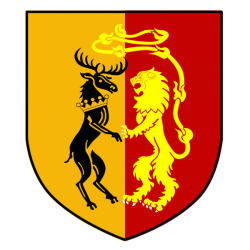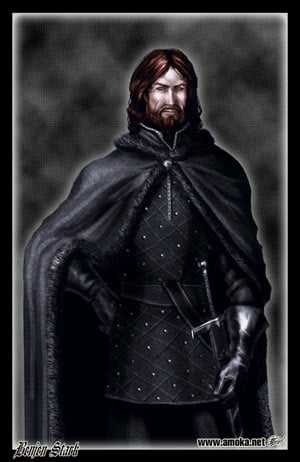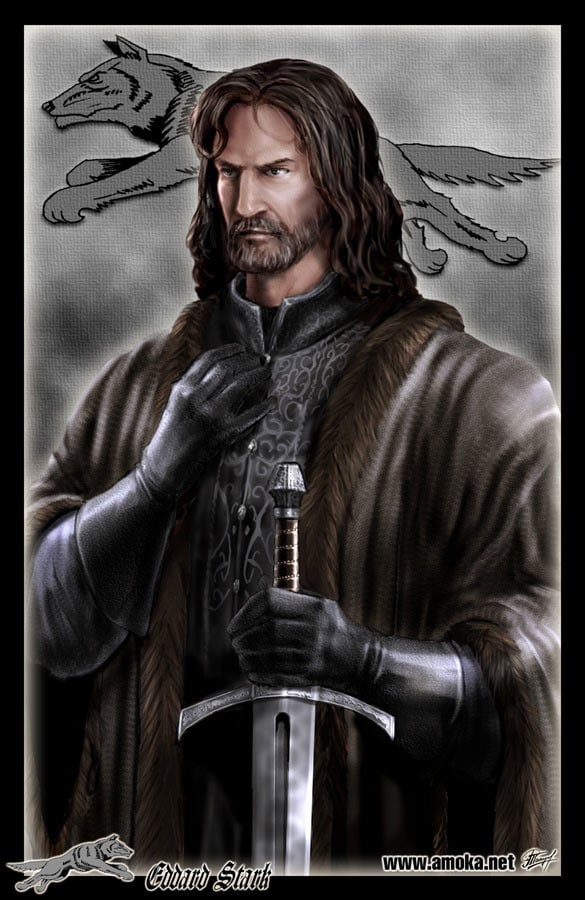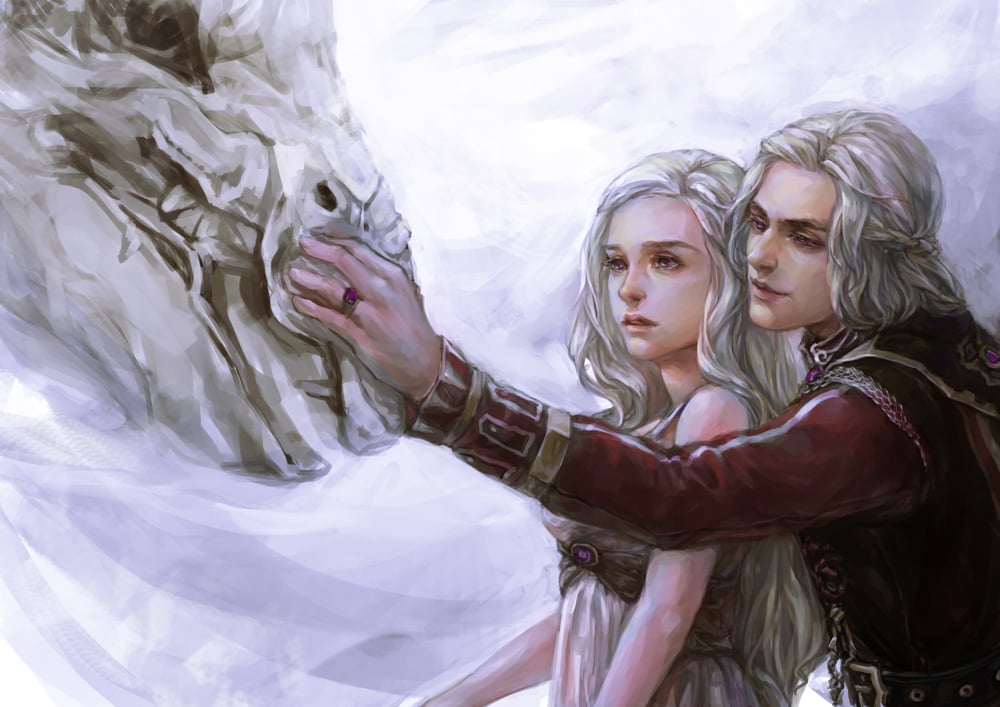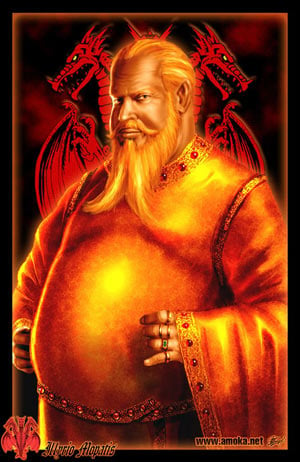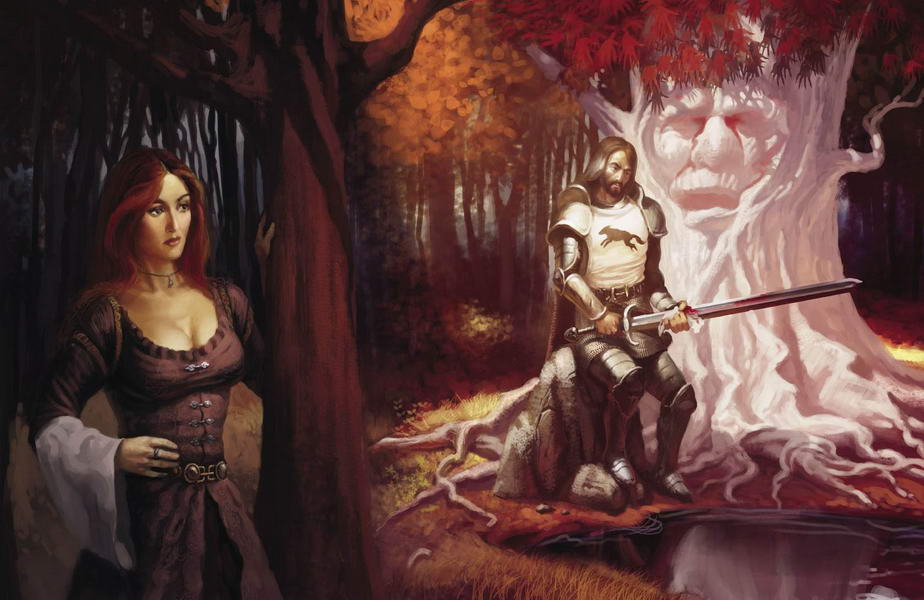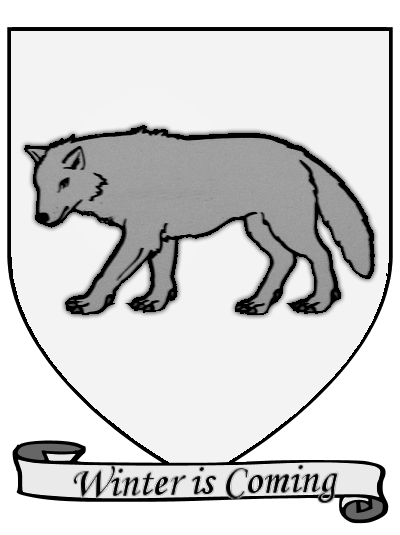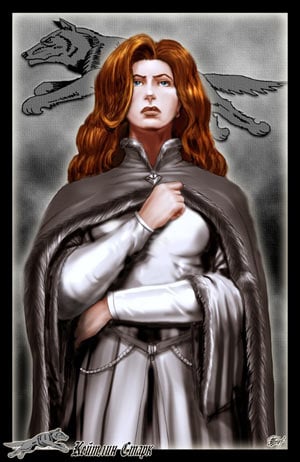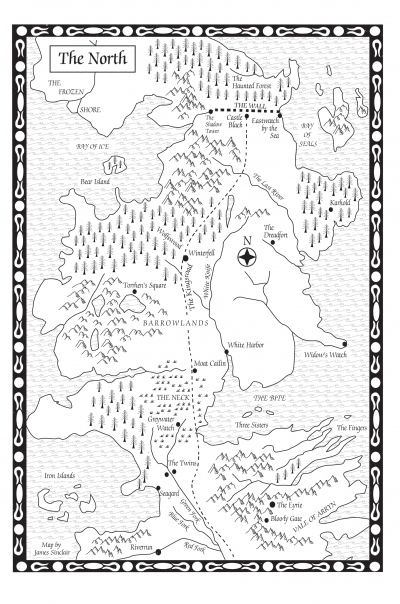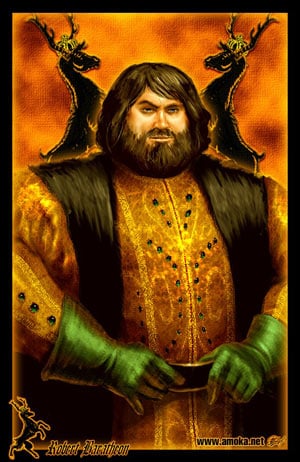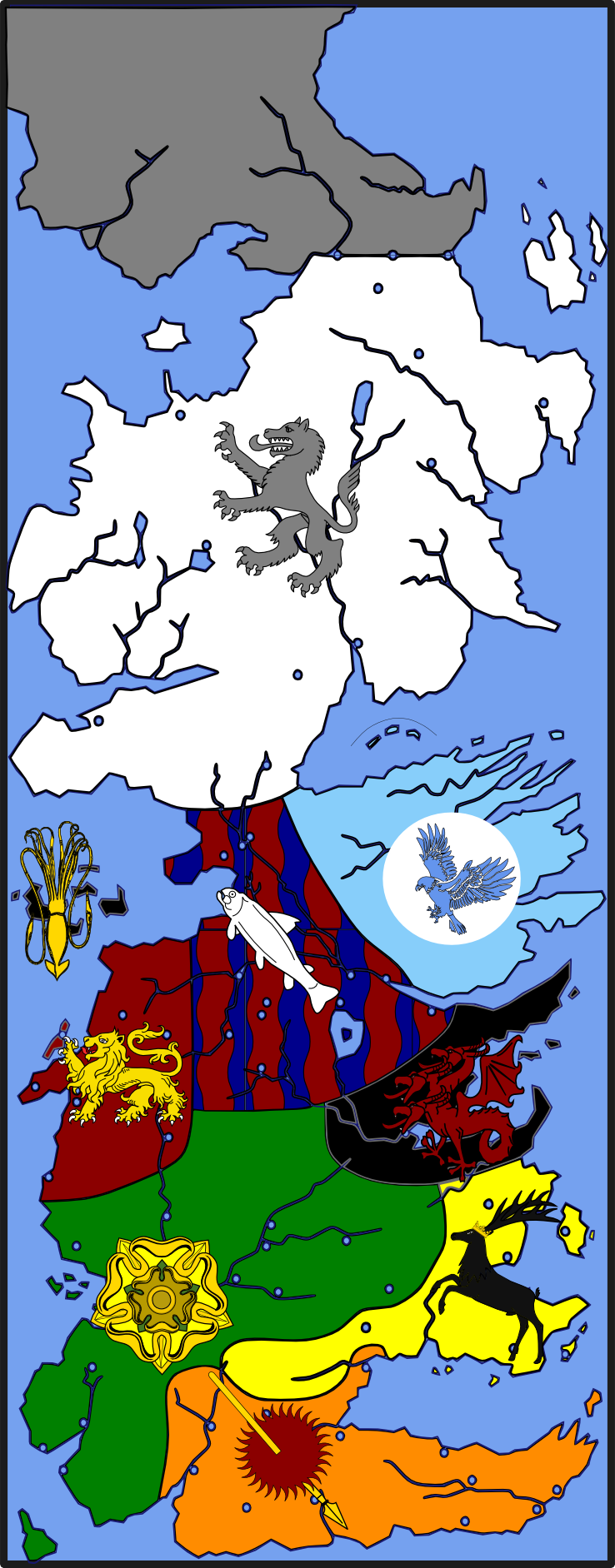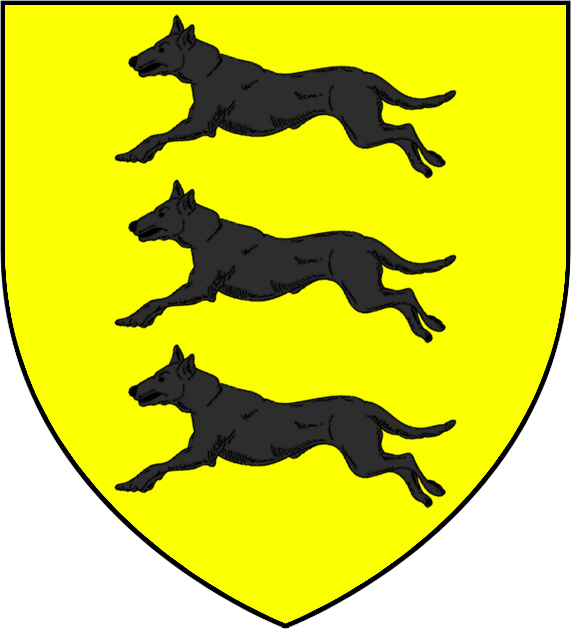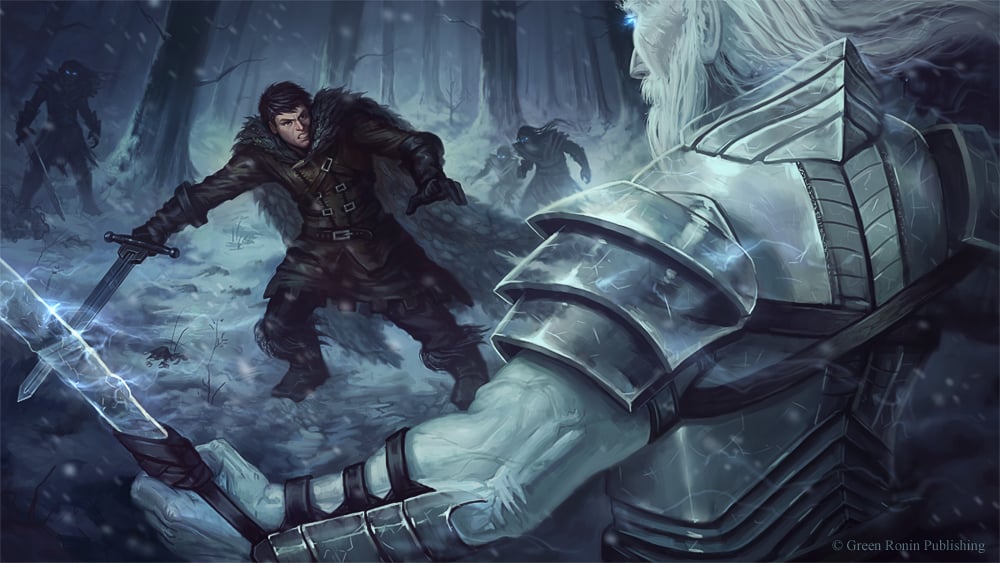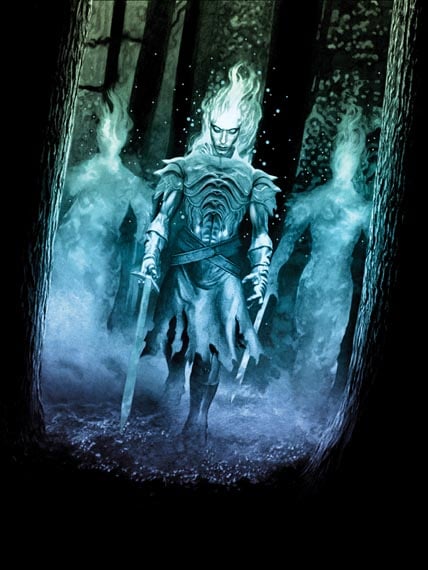Synopsis:
In our first repeat chapter of the book we have another good character piece from Catelyn as well as the take off of the conspiracy which will drive the novels and leave some very pertinent unanswered questions. Catelyn and Ned finish lovemaking only for Maester Luwin to arrive bearing an unknown message delivered to him in secret. It proves to be from Catelyn's sister Lysa. The message implicates the Queen in the murder of Jon Arryn. Ned, who had been about to refuse the Handship is forced by his wife (and maester's) counsel to take it in order to solve the murder of his old mentor. Finally the question of where the children will go is settled, much to the pain of both parents.
What do we learn?:
Culture:
Here we get some interesting insights into the nature of bastards in Westeros. I won't comment much more since I'm saving my thoughts on that for another essay. Here though it's interesting that bastards are seen as outside the line of succession whereas in our time bastards could easily make viable candidates for the throne. The reasons for bastards being socially unacceptable here aren't immediately clear (as Catelyn even mentions that Jon's children could challenge her grandchildren for Winterfell) but seems to have more to do with the pride and emphasis on pure blood lines of the Great Houses versus any real social concerns that might impede a bastard from taking his place amongst the families of the noble houses.
Here also is our first look at the maesters, the intellectual elite of Westerosi society. The maesters are the scholars, healers, librarians, teachers, postmen, and general intelligentsia of Westeros. They do not hold a monopoly on knowledge, but they seem to be the established and entrenched, and accepted order of teachers and the holders of knowledge.
The role in which we see maester Luwin is one part teacher, scholar, doctor, adviser, and spy/post master for the Lord of Winterfell. He helps deliver the Lord's children, advises him in times of trouble, and even pursues his own studies part time. There are apparently only one maester at each castle, but he has servants which explains how he can carry out such a myriad of duties.
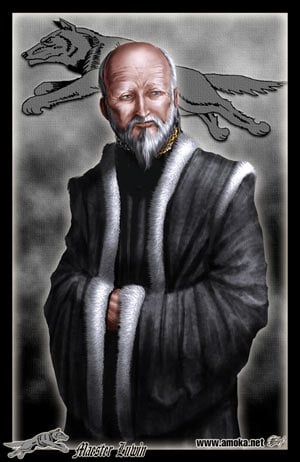 |
| Credit to Amoka |
There is really no real world analogy to the maesters of Westeros, they serve in a role that monks did for many noble families in Europe and Japan, and they occupy the place of the scholars of the early and late Middle Ages, then of course they even occupy the role of doctor. It's a fascinating social category which fills a huge number of niches in Westerosi society. That gives the maesters order exceptional power, but as I've seen many argue, also retards progress as it traps learning and knowledge in the hands of one organization.
Something else interesting to note is the clear technical ingenuity displayed in the construction of Winterfell, the keep built over natural hot springs which provide warmth even in the depths of winter and even allow for maintaining greenhouses! It speaks of a sort of lost technology from ancient times, or at the very least that the builder of Winterfell was farsighted and must have been a prodigy of some sort.
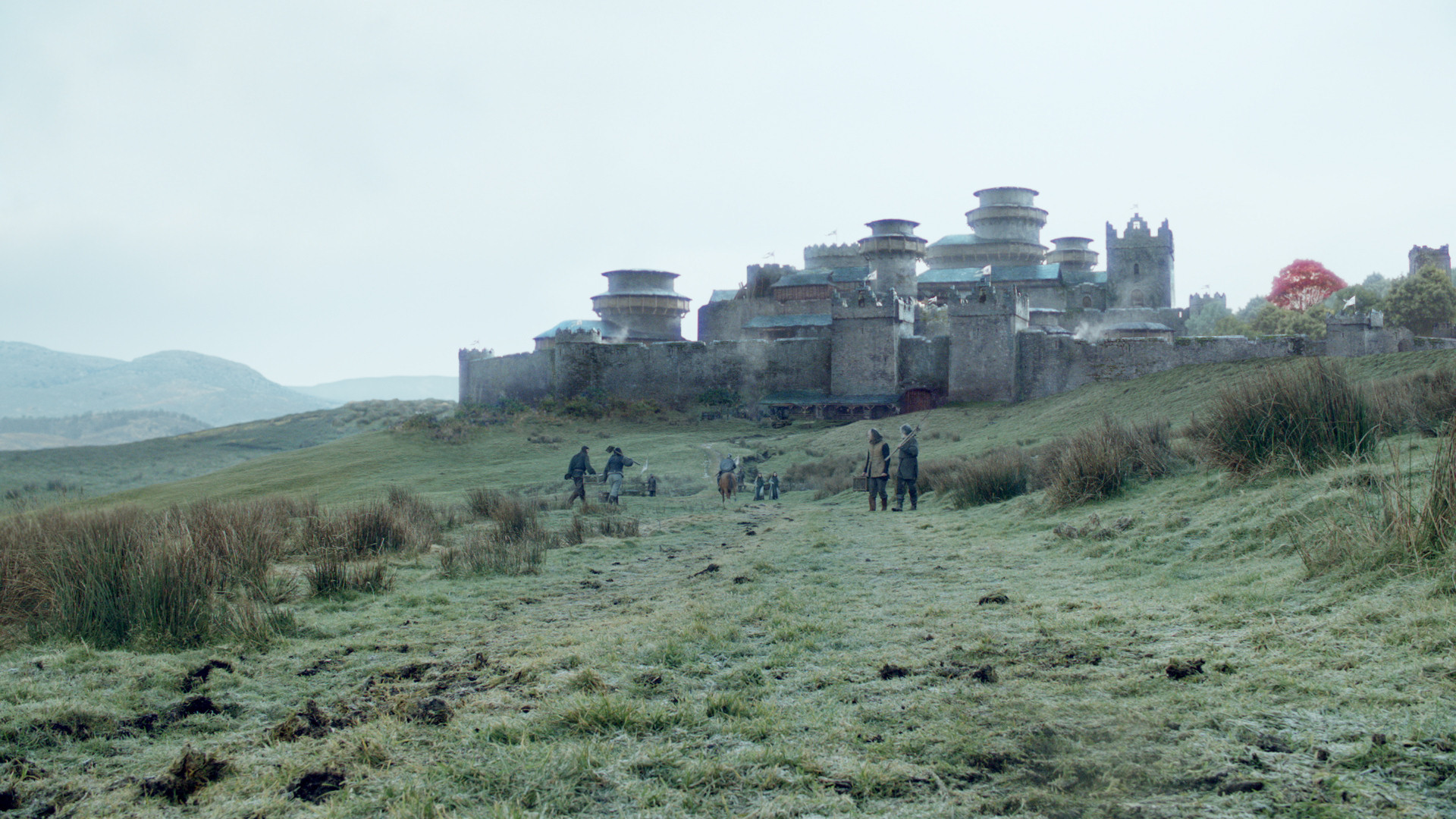 |
| Winterfell, heart of the North. |
Political:
Here we see some great feudal politics at work, and it even gets wound up in character interpretation.
Ned is considering refusing the position of Hand as he does not relish the idea of leaving his home and his family to run Robert's kingdom for him, and he has no stomach for the constant political infighting of the South. However, Catelyn wisely points out how Robert would feel denied and potentially become suspicious of Ned should he choose to reject what the king would see as a generous offer.
The interplay of vassal and lordly politics here is interesting as it does show how intrigues can begin from even the most innocuous events. Robert's sense of entitlement as king and Ned's simple desire to simply rule as Lord of Winterfell clash. It's also interesting how Ned's powers as Hand would allow him to have some measure of control over the other Houses and in how they answer to the Crown, which further emphasizes the burdens and responsibility Robert is placing on Ned by asking this of him.
However, we also see how Ned must begin divvying up his children for political gain. Robb, being his eldest and his heir, must stay in Winterfell and learn to rule in order to one day take his place as Lord of the North. This is just good sense as the heir must be safe and away from danger while being given good counsel and taught to rule well a justly. Thus it is Catelyn's place to stay behind and teach him. Rickon must also stay behind as he is too young to do much else.
Now Bran going along is an interesting choice. It is true he could help bridge the gap between Prince Joffery and the other Stark boys, but there is no real political purpose to his accompaniment of his father south. It could be of course that Ned simply wants one of his male children there looking out for the girls in times of trouble.
The two daughters of course, are even more self-explanatory. They are bargaining chips in the feudal game. While Sansa is already tied to Joffery to cement a new dynastic marriage Arya is young and a wildcard who could be used as a way to cement an alliance as well as to lure other lords in with promises of ties to a Great House. It's a dirty look into how even children are pawns in the game of thrones.
On the other side of the political coin, its clear that there is friction between the Lannisters, Baratheons, and Starks. The friction comes from what is clearly a loveless marriage between Robert and Cersei while the Starks simply mistrust the Lannisters due to Tywin's brutality during the rebellion. That this friction might have made its way into an outright murder of the king's last non-Lannister adviser (and Robert's right hand man) is something even the reluctant Ned cannot ignore.
Of course this is the opening moves of the far-sighted (if not intricately planned) game by Littlefinger to destabilize the realm in order to maneuver his way into power. This is one of the deeper intrigues of the series which deserves some in depth analysis. It's definitely not the opening move of the scheme (as Littlefinger first had to establish himself as a power broker in the capital) but it is one of the more important moves for the narrative of the whole plot of the series.
The genius of this move is self-evident. The Starks and Lannisters already dislike one another and it requires no real effort on Littlefinger's part, and similarly he has little risk of exposure as the Lannisters have little reason to out Littlefinger since Jaimie and Cersei have no reason to reveal their incestuous ways. It's a perfect web of coincidental interests which allow Littlefinger to advance his own schemes while allowing the two Lannister twins to keep their incestuous secret safe.
Now as to why each side benefits from the murder of Jon Arryn:
Littlefinger - Petry Baelish benefits from the death of Jon Arryn for two reasons, one is that the man who was for all intents and purposes running the realm is now dead. He can no longer represent an obstacle to Littlefinger's more long term plans.
It's also the nudge he needs to destabilize the kingdom so he can begin climbing the rungs of power. More on how risky portions of Littlefinger's plans are later.
The Lannisters - For Cersei and Jaimie it is simply a matter of self-interest and survival. Jon Arryn was clearly growing suspicious of all of Robert's fair haired children and found himself (with Stannis) investigating the parentage of Robert's bastards. This of course would have exposed the actions of the Lannisters to the world, spelled their deaths, and brought great dishonor upon their House.
Killing Jon Arryn was just the way they would end up surviving this crisis.
Now this may explain some of the later collusion by the two groups (Cersei helping Littlefinger and Littlefinger doing his best to help Cersei's financial issues) but I personally believe that in the death of Jon Arryn it was more coincidental collusion rather than a joint scheme. More on that later though.
Character:
Not very much new character wise. We see Catelyn's dogged determination to be rid of her husbands bastard son and her fierce devotion to her family. We also see she is a practical woman and incredibly trusting.
However, we also get a rare look at something which is driving Ned forward. He realizes that he was not meant to rule, not even meant to marry his wife. His elder brother Brandon, who was murdered by the Mad King, was meant to rule Winterfell and so he was never truly trained for politics and rule the way his brother would have been. It's clear that this haunts his decisions, thoughts, and actions. It is hard to grow up in a siblings shadow, but then being thrust into a position that that sibling was supposed to occupy and without a father to guide you is even worse!
 |
| Brandon Stark, by Dejan_Delic |
Ned had to do some quick growing up as a child, and he did much of that on the battlefield. It says something that Ned turned out the way he did really.

